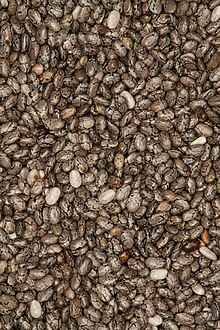A
Nutraceutical is a pharmaceutical-grade and standardized nutrient.
[1] In the US, "nutraceuticals" do not exist as a regulatory category; they are regulated as
dietary supplements and
food additives by the FDA under the authority of the Federal Food, Drug, and Cosmetic Act.
Regulation[edit]
Nutraceuticals are treated differently in different jurisdictions.
Under Canadian law, a nutraceutical can either be marketed as a food or as a drug; the terms "nutraceutical" and "functional food" have no legal distinction,
[3] referring to "a product isolated or purified from foods that is generally sold in medicinal forms not usually associated with food [and] is demonstrated to have a physiological benefit or provide protection against chronic disease."
United States[edit]
International sources[edit]
In the global market, there are significant product quality issues.
[7] Nutraceuticals from the international market may claim to use
organic or
exotic ingredients, yet the lack of regulation may compromise the safety and effectiveness of products. Companies looking to create a wide
profit margin may create unregulated products overseas with low-quality or ineffective ingredients.
A market research report produced in 2012 projected that the worldwide nutraceuticals market would reach US$250 billion by 2018,
[8] defining that market as "Dietary Supplements (Vitamins, Minerals, Herbals, Non-Herbals, & Others), and Functional Foods & Beverages"
[9]
Classification of nutraceuticals[edit]
Nutraceuticals are products derived from food sources that are purported to provide extra health benefits, in addition to the basic nutritional value found in foods. Depending on the jurisdiction, products may claim to prevent
chronic diseases, improve health, delay the
aging process, increase
life expectancy, or support the structure or function of the body.
[10]
Dietary supplements[edit]

Dietary supplements, such as the vitamin B supplement shown above, are typically sold in pill form.
In the United States, the Dietary Supplement Health and Education Act (DSHEA) of 1994 defined the term: “A
dietary supplement is a product taken by mouth that contains a "dietary ingredient" intended to supplement the diet. The "dietary ingredients" in these products may include:
vitamins,
minerals,
herbs or other botanicals,
amino acids, and substances such as
enzymes, organ tissues, glandulars, and
metabolites. Dietary supplements can also be
extracts or concentrates, and may be found in many forms such as
tablets,
capsules, softgels,
gelcaps,
liquids, or
powders.”
[11]
Dietary supplements do not have to be approved by the
U.S. Food and Drug Administration (FDA) before marketing, but companies must register their manufacturing facilities with the FDA and follow current good manufacturing practices (cGMPs). With a few well-defined exceptions, dietary supplements may only be marketed to support the structure or function of the body, and may not claim to treat a disease or condition, and must include a label that says: “These statements have not been evaluated by the Food and Drug Administration. This product is not intended to diagnose, treat, cure, or prevent any disease.” The exceptions are when the FDA has reviewed and approved a health claim. In those situations the FDA also stipulates the exact wording allowed.
Functional foods[edit]

Considered a father of Western medicine,
Hippocrates advocated the healing effects of food.
Health Canada defines functional foods as “ordinary food that has components or ingredients added to give it a specific medical or
physiologicalbenefit, other than a purely nutritional effect.”
[12] In
Japan, all functional foods must meet three established requirements: foods should be (1) present in their naturally occurring form, rather than a capsule, tablet, or powder; (2) consumed in the diet as often as daily; and (3) should regulate a biological process in hopes of preventing or controlling disease.
[13]
History[edit]
The modern nutraceutical market began to develop in
Japan during the 1980s. In contrast to the natural
herbs and
spices used as
folk medicine for centuries throughout
Asia, the nutraceutical industry has grown alongside the expansion and exploration of modern
technology.
[



